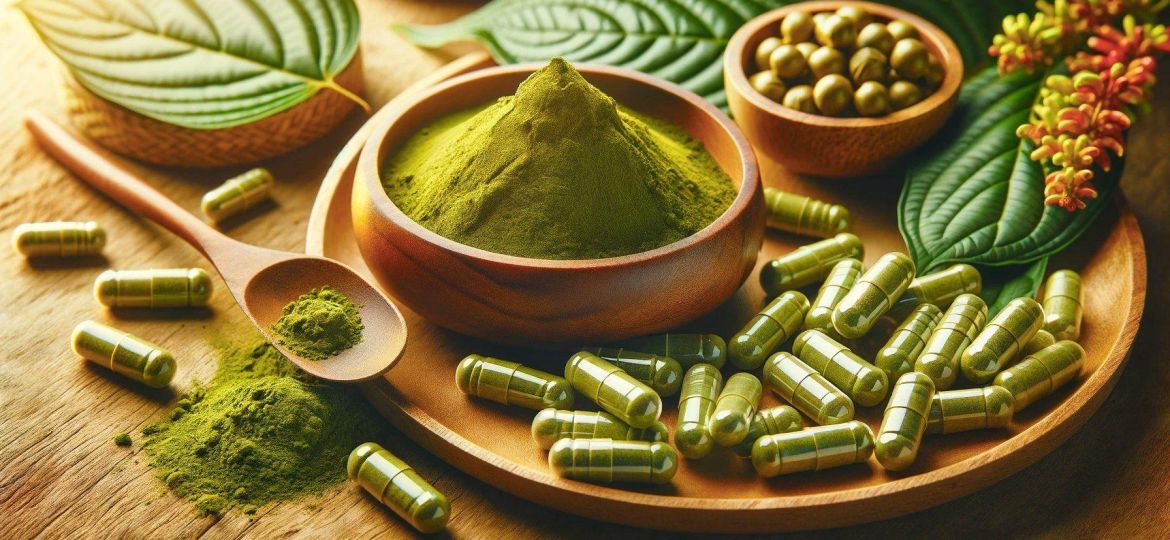No products in the cart.

Does Kratom Get You High?
Does Kratom Get You High?
Kratom, a herbal supplement originating from Southeast Asia, has stirred controversy regarding its perceived effects on the mind and body. While some misconceptions suggest that Kratom induces a sense of euphoria or a “high,” the truth behind its properties is much more nuanced. In this comprehensive exploration aimed at individuals who prioritize natural remedies over conventional medications, we will debunk the myth surrounding Kratom’s alleged psychoactive qualities. Through detailed explanations, testimonials, and factual information, we aim to shed light on the true nature of this botanical product, providing clarity for those seeking a holistic approach to their health and well-being.
Understanding Kratom: Beyond Myths
What is Kratom?
Kratom, scientifically known as Mitragyna speciosa, is a tropical evergreen tree related to the coffee plant. It’s native to Southeast Asia, particularly in countries like Thailand, Malaysia, and Indonesia. The leaves of the kratom tree contain compounds called alkaloids, with mitragynine and 7-hydroxymitragynine being the most prominent. These alkaloids interact with the body’s opioid receptors but in a more subdued and complex manner than typical opioids. Traditionally, kratom leaves were chewed or brewed into tea by local workers to combat fatigue and improve work productivity. In recent years, it has gained popularity in Western countries for its potential to alleviate pain, manage opiate withdrawal symptoms, and as an aid for mood enhancement. However, it is not without controversy, and its legal status varies across different jurisdictions.
Common Misconceptions About Kratom
One prevalent misconception about kratom is that it’s a legal high similar to more severe, controlled substances. This is largely due to its interaction with opioid receptors, which can lead to the misunderstanding that it has the same strength and risk profile as opioids. Another myth is that kratom is entirely safe because it is a natural supplement. While it is derived from a plant, like many natural substances, it can still have powerful effects and potential risks. People also often assume that kratom has no medicinal properties and that its use is solely for recreational purposes. This overlooks the historical use of kratom in traditional medicine in Southeast Asia and its potential benefits that are currently being researched. Finally, there’s a belief that kratom is not addictive, but like many substances that affect the brain’s chemistry, it can be habit-forming for some individuals.
The Reality of Kratom’s Effects
Is Kratom a High-Inducing Substance?
Kratom is not typically classified as a high-inducing substance in the same vein as illegal narcotics. Its effects are more subtle and depend greatly on the dosage and individual biochemistry. In smaller amounts, kratom has stimulant-like effects, which might increase alertness and energy. In contrast, larger doses tend to have sedative effects, which may induce calmness and pain relief rather than a euphoric high. It’s important to clarify that while some users report a mild sense of wellbeing, this is not comparable to the high associated with powerful synthetic drugs or opiates. The key takeaways are that the alkaloids in kratom interact with the same brain receptors as opioids, but with fewer and milder psychoactive effects, and that responsible, informed use is crucial to avoid any unwanted consequences.
The Difference between Kratom and Traditional Highs
The effects of kratom are distinct from the highs produced by traditional psychoactive substances. Where substances like narcotics or stimulants typically trigger intense euphoria or energy spikes, kratom tends to produce a much milder set of effects. For instance, at low to moderate doses, kratom may offer a mild boost in energy and focus, akin to caffeine. At higher doses, it can provide pain relief and relaxation without the profound sedation or euphoria associated with opioid drugs. It’s crucial to understand that kratom’s alkaloids affect the opioid receptors differently, not fully activating them in the way that stronger drugs do. Therefore, while it can influence mood and perception, it does not cause the extreme altered states or the addictive highs that can lead to serious substance abuse issues.
Testimonials: Real Experiences with Kratom
User Experiences with

Many individuals who use kratom report positive experiences, highlighting its potential to manage pain, reduce anxiety, and improve overall mood. For instance, some users with chronic pain conditions speak of kratom providing significant relief when traditional painkillers were ineffective or had undesirable side effects. Others dealing with anxiety have found that certain strains of kratom can help produce a calming effect, assisting them in managing their daily stresses. It’s also not uncommon to hear from users who have successfully utilized kratom as a tool in their journey to overcome dependencies on more harmful substances. However, experiences with kratom can vary widely, and while many are positive, it is essential for new users to approach with caution, start with lower doses, and be mindful of the source and quality of the kratom they are using.
The Safety and Benefits of Kratom Use
While the safety of kratom is a topic of ongoing research and debate, many users attest to the benefits they’ve received from this natural supplement. Advocates for kratom often mention its effectiveness as a less addictive alternative to traditional painkillers. When used responsibly, it can offer pain relief, emotional regulation, and aid in combating withdrawal symptoms from opioids. Kratom also has a community of users who vouch for its benefits in enhancing productivity and concentration, similar to the effects of caffeine. However, safety is paramount, and users are advised to consult with healthcare providers, especially if they have underlying health conditions or are taking other medications. Quality control is another critical factor, as the market is not uniformly regulated, and product purity can vary. Responsible use includes obtaining kratom from reputable sources and adhering to suggested serving sizes.
Discover more from Happy Dragon Kratom
Subscribe to get the latest posts sent to your email.








